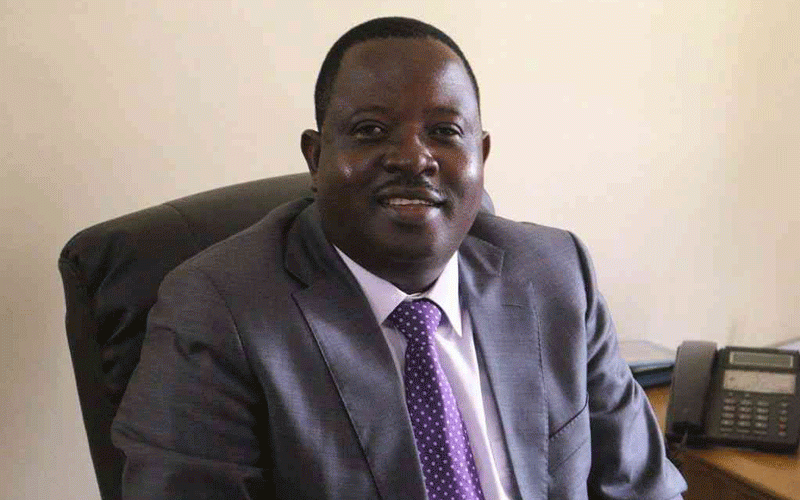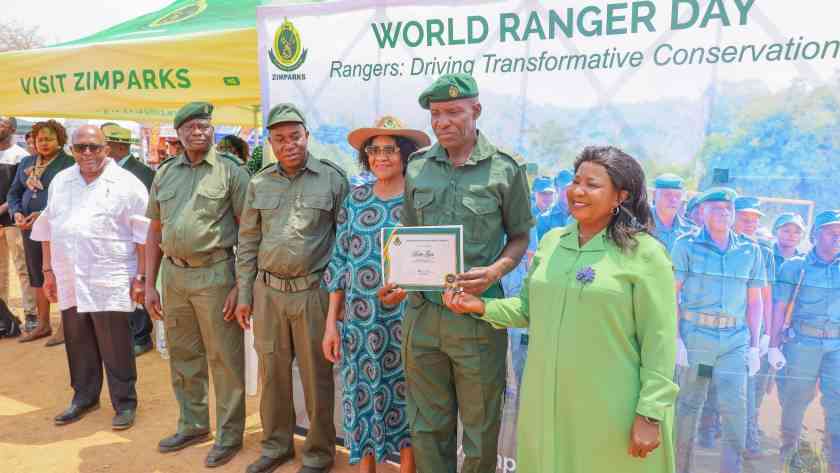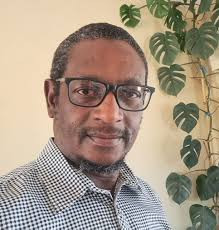
GOVERNMENT must urgently invest extensively in cancer research focusing on prevention, treatment and care of patients in order to address the growing cancer crisis, which is claiming thousands of lives annually, a leading health advocacy group has said.
Also proposed, is the subsidisation of cancer treatment either partly or fully, making it free or affordable to ensure that every citizen can access care without financial difficulty to enable the attainment of health equity. The current high cost of cancer treatment remains a stumbling block to many as they vary between US$150 and US$1 000 per session, essentially excluding most of the poverty-stricken Zimbabweans from getting treatment. This calls for a subsidy for cancer treatment to ensure health equity.
Community Working Group on Health executive director, Itai Rusike, says government should declare cancer a public health emergency so that increased funding can be channelled towards stemming the scourge that has caused unnecessary human suffering and avoidable deaths. He called for increased targeted funding from the national fiscus accompanied by a massive community awareness drive to increase knowledge and douse the fears, myths and general misconceptions associated with the disease.
“Cancer is now a humanitarian disaster that needs urgent State intervention,” Rusike said. “We need to put more resources into research, treatment and care of patients and we should also make sure we raise awareness in different communities if we are to end this scourge.”
His clarion call comes as the world commemorates the breast cancer month of October, a time to remind governments and other health service providers to seriously consider other ways they can assist patients and families in the prevention, early detection and treatment of the deadly non-communicable disease.
Breast cancer is the second most common cancer among women after cervical cancer. Cancer of the breast, although it is mostly associated with women, also affects men.
According to the Zimbabwe National Cancer Registry (ZNCR), the country recorded 7 841 cancer cases in 2018. Of the total cases, breast cancer accounted for 8%, cervical cancer 21%, prostate 11% and the rest included many other types of cancers. Of the 2 743 cancer deaths recorded that year, breast cancer accounted for 7%, cervical 13% while prostate cancer accounted 10%.
However, it is widely believed that these known statistics are just a tip of the iceberg as many cancer patients are not recorded as they do not present for treatment at conventional health facilities and several of the deaths are not registered.
- Re-imagining the workplace: Dear line managers; No, it’s not an HR issue
- Re-imagining the workplace: Does the interview as a hiring method still work?
- Re-imagining the workplace: Dear line managers; No, it’s not an HR issue
- Re-imagining the workplace: Workplace politics and other shenanigans
Keep Reading
Of those who do report, the majority are already at an advanced stage of the disease, due to limited access to screening services pointing to an urgent need to raise awareness in communities. The lack of adequate knowledge leads to delayed presentation of cases at health institutions. In 2018, ZNCR reported that over 80% of the cases were diagnosed at advanced stages. Increase in cancer awareness can empower people to recognise early warning signs, make informed choices about their health and counter their own fears and misconceptions about the disease.
Rusike proposed the integration of cancer control in community, school and workplace health promotion programmes as a multi-faceted approach was the sure way of curbing the menacing disease. He said it was of critical importance that communities are educated on the importance of early screening and treatment to avoid the progression of the disease, the resultant pain as well as the overwhelming costs that patients must endure.
Access to cancer information and management services is limited and greatly varies according to one’s economic status, with poor members of society barely getting the minimum in accurate information at the right time. This emphasises the importance of calls for collaboration between the Health and Child Care ministry and alternative healthcare service providers to tap into existing knowledge systems and practices that can be adapted to assist in combating cancer.
It is essential to rope in the media to be part of the broader campaign, as the media are ideal for the dissemination of accurate updated information to the public. Issues to do with cancer just like HIV/AIDS could also be included in the journalism curriculum to ensure correct and informed reportage that is rights-based, experts say.
The Cancer Association of Zimbabwe (CAZ) is running this month’s national awareness campaign under the theme, “Find It, Fight It, Win the Battle”.
“Join us in spreading awareness, promoting early detection and supporting survivors. Together we rise above breast cancer,” said CAZ, as it rallies all stakeholders in efforts to eradicate breast cancer.
There is a great necessity to decentralise the cancer prevention and control programme utilising structures like those of the National AIDS Council to ensure everyone has access to cancer services. Presently, there are only two public cancer treatment centres that offer chemotherapy and radiation treatment at subsidised prices in Bulawayo and Harare but are over-subscribed.
The only cancer services on offer in most of the country’s rural health centres are screening using visual inspection with acetic acid and cervicography and referrals for further tests, treatment and therapy at district and provincial level. Again, this makes treatment — coupled with transport costs — beyond the reach of many.
“I, therefore, urge the government to avail free screening including Pap smears (a procedure to test cervical cancer in women), clinical breast examinations and prostate-specific antigen tests at primary health level,” Rusike said.
He noted that cancer should be made a standalone health issue, with an established multi-sectoral national taskforce specifically tasked with addressing all the challenges associated with the disease. Additionally, cancer must also be added to the list of notifiable disease in the long run making it legally mandatory for health providers to report cases to state or local public health officials.
“With appropriate investment, planning and advocacy, we can ensure that patients accessing health care services in the country would be assured of their right to receive quality treatment and care regardless of whom and where they are,” Rusike said.
Fighting the cancer menace requires strengthening health systems including improvement of human resources for health and reducing the current brain drain. It also calls for the review of the current staff establishment to reflect the current disease burden and population growth to ensure better health outcomes.
Health equity requires a strong political will to invest in health infrastructure, equipment, human resources, and medical products.
Rusike applauded the government’s current efforts in coming up with the national cancer control plan 2022–2026, a guiding document for cancer prevention and control. However, he urged the government to fully resource the strategy development process to ensure a comprehensive funded roadmap that will effectively address the current cancer menace.










